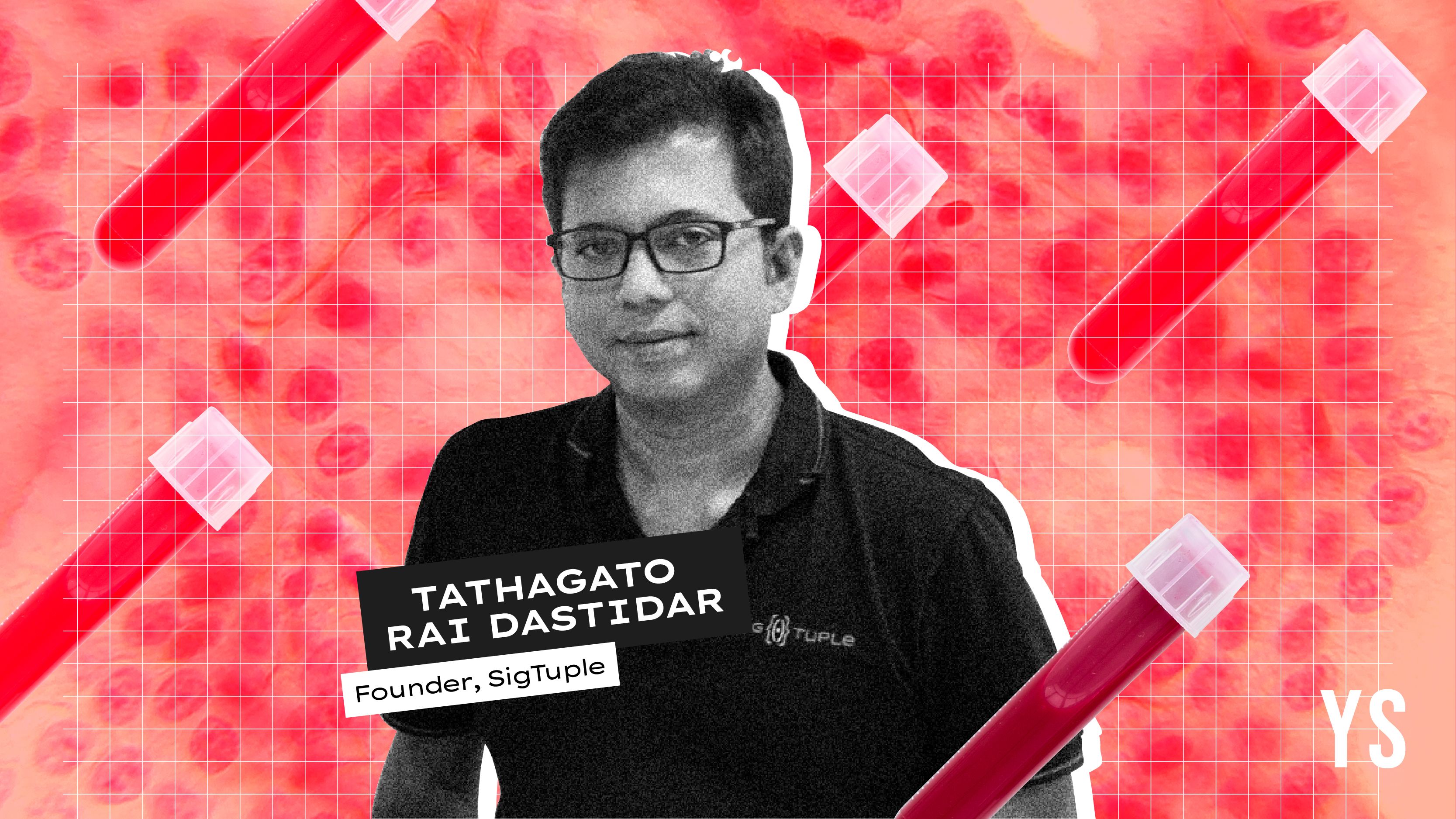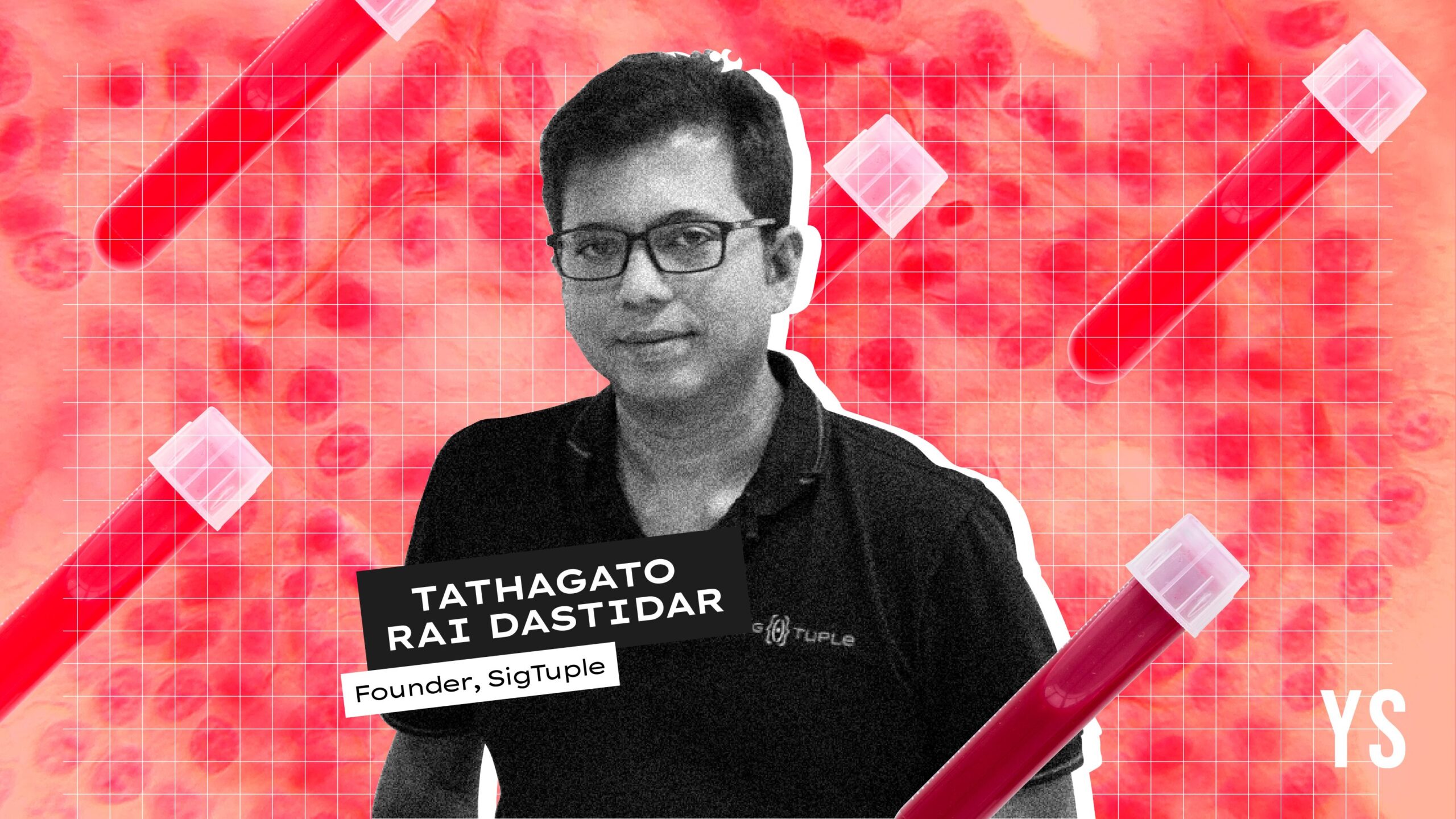
Critical diseases are often detected through manual examination of samples placed under a microscope. This process is prone to human error, often leading to misdiagnosis and severe consequences thereafter–including inappropriate treatment, worsening of the patient’s condition, and even fatal outcomes.
Tathagato Rai Dastidar, an IIT Kharagpur alumnus, wanted to digitise this process and reduce misdiagnosis with the use of advanced technology.
Dastidar, who has worked for over 16 years in companies such as National Semiconductor, Yahoo! Search, , Big Data Labs, and Gracenote, has experience in handling diverse data, machine learning, and image processing.
Intrigued by the idea of applying artificial intelligence (AI) to medical data, he decided to come up with an advanced screening solution that would improve diagnostic efficiency.
As he did not have any medical background, Dastidar did not know where to start. Fortunately, he was able to connect with visionary doctors, pathologists and other acquaintances, who guided him through the process.
Along with Rohit Pandey and Apurv Anand, Dastidar engaged in intense brainstorming with doctors and medical experts on the feasibility of using AI and robotics to analyse medical images, reduce errors in diagnostics, and improve accuracy and patient outcomes.
Eventually all this culminated in the birth of SigTuple in 2015. The Bengaluru-based startup’s primary goal is to automate the manual review of visual medical data–i.e. images of biological samples of blood and urine.
“Healthcare generates a lot of data. The ability to learn from this data can potentially lead to better disease diagnosis and disease management. This is the guiding principle of all healthcare related AI companies,” says Dastidar.
Automating sample screening
Medical diagnosis and disease prediction are often time consuming and require a high degree of skills.
Even a skilled reviewer (a pathologist or a senior medical technologist) can take up to 20 minutes to manually review a sample, says Dastidar.
On the other hand, SigTuple’s AI-driven software automates microscopic review and brings down the load of the pathologist. It identifies the different types of cells or parasites present in the sample and predicts the disease condition in less than a minute, says the founder.
When a pathologist examines a sample through a microscope, they can only look at a limited area of the sample. In case of automated microscopy, a much larger area of the sample can be examined. This improves the chances of finding rarer abnormalities or rarer cells, he adds.
SigTuple’s flagship product AI100 is an automated digital microscope with a built-in AI platform, which manages and analyses data to support data processing and diagnostic capabilities.
Upon arrival, a patient’s blood/urine sample is processed by an automated ‘cell counter’, which is integrated inside the digital microscope for numerical data.
Then AI100 automates the microscopic analysis of blood and urine samples using a robotic arm, driven by AI, to position the sample under a camera lens, which captures high-quality images. These images are finally processed on the cloud, thus streamlining the diagnostic process.
Test results for normal and near-normal samples are generated quickly. However, for patients with illnesses, the sample is again examined by a skilled technician or pathologist to confirm the diagnosis.
“The AI results can be accessed by the pathologist remotely, enabling her to serve diagnostic centres far away. The pathologist performs much better, especially in detecting rarer abnormalities,” says Dastidar, adding that whatever the pathologist can do today with the help of the microscope can be done with AI100, with better accuracy.
Abnormalities include rare genetic mutations, unusual cellular structures such as blood cancers, sepsis, urinary tract infections, malaria infections, and platelet disorders (for instance, in case of dengue).
Remote analysis allows doctors and experts to collaborate and detect rare conditions.
While digital microscopy and AI make the process of sample review faster and potentially more accurate, it doesn’t eliminate the need for a pathologist, who has to verify and sign off on the AI generated report.
“Medical AI must always be supervised. The output should never be directly released to patients. Pathologists rely on visual evidence to confirm the accuracy of AI-generated insights before issuing the final report,” reiterates SigTuple’s founder.
.thumbnailWrapper{
width:6.62rem !important;
}
.alsoReadTitleImage{
min-width: 81px !important;
min-height: 81px !important;
}
.alsoReadMainTitleText{
font-size: 14px !important;
line-height: 20px !important;
}
.alsoReadHeadText{
font-size: 24px !important;
line-height: 20px !important;
}
}

Deep learning
The startup uses deep learning to analyse medical images and detect rare abnormalities. This involves training AI models on large datasets of images to identify patterns and anomalies that may indicate rare conditions. SigTuple has partnered with various research hospitals and medical colleges to obtain anonymised data.
Digital microscopy: Challenges and opportunities
Currently, AI-driven digital microscopy solutions is a largely fragmented market, with a specialised machine for every type of sample, says Dastidar.
For instance, CellaVision’s microscopy solution is dedicated to analysing blood samples, while Philips and Leica’s scanners focus exclusively on histopathology (study and diagnosis of tissue diseases).
“It is not that automation does not exist. There are machines capable of converting physical samples into digital microscopic images for pathologist review. However, these machines are expensive and often specialised for specific purposes, such as biopsies but not blood samples, and vice versa. These two problems combined together have resulted in the adoption of digital automated microscopes,” he says.
Dastidar claims SigTuple’s product is capable of handling multiple sample types simultaneously. Its upcoming product–AS76–extends to samples such as tissues, biopsies, and pap smears; it is expected to be released commercially later this year.
Traditional digital microscopes can cost $100,000 to $1,000,000 depending on their capabilities and specialisations, while SigTuple’s digital automated microscope is–on an average–50% cheaper than traditional counterparts, says Dastidar.
Striving to be a global company
SigTuple, which is backed by , , and co-founder Binny Bansal, has raised about $40.8 million in funding so far.
The healthcare firm has onboarded Horiba Medical and Genworks Health–two of the largest medical device distributors in India–as channel partners for sales and service in the country. Its clientele includes major players in the Indian diagnostic industry, including Dr Lal Path Labs, HCG, Manipal Hospitals, and KRSNAA diagnostics; its product has been installed in over 180 labs and hospitals.
SigTuple has published over 30 research articles and secured 23 patents till date for its underlying technology and capabilities–which include AI-based detection of malarial parasites from peripheral blood smears and display of specific sections on a slide where AI has identified potential abnormalities.
In October last year, the startup bagged the US Food and Drug Administration’s 510(k) clearance for AI100. This means its product is substantially equivalent to a legally marketed predicate device and has been cleared for commercial use in the United States.
A predicate device is a medical device that’s legally marketed in the US and used as a point of comparison for new medical devices seeking approval.
The startup set foot into Indonesia last year, partnering with medical equipment supplier Tawada Medical. It plans to expand into the European Union and the United States in FY25. The long-term plan is to make SigTuple a truly global company, says Dastidar.
“We are striving to build more features, capabilities, and enhanced accuracy into our products, while never losing sight of patient safety and risks,” he signs off.
Edited by Swetha Kannan










